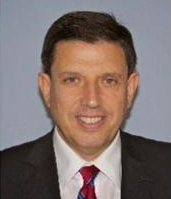Market intervention to reduce drug prices is making a crucial contribution to defeating deadly diseases, a senior official from the World Health Organization said.
UNITAID, a small organization based within the United Nations’ health arm, funds market intervention to incentivize pharmaceutical companies to produce new drugs at reduced prices for poor countries.
“We don’t spend money to buy the products. We put this money into changing how the markets work so that markets work for the advantage of the poor,” Denis Broun, executive director of UNITAID, said in an interview with The Korea Herald. UNITAID means “helping together” in French.
 |
Denis Broun |
UNITAID negotiates with drug makers to procure necessary drugs by cutting the price to a level at which companies can still make a profit. The “win-win program” reduces the cost of HIV treatment by 80 percent and increases access to HIV pediatrics, Broun said. It has recently succeeded in procuring better medicines for kids living with HIV. Over 400,000 children are on treatment, he said. It also procures drugs to treat other major diseases such as malaria and tuberculosis.
The WHO project team also stimulates market competition and helps pharmaceutical firms reduce administration costs such as the expense of getting sales approval from health authorities. Drugs guaranteed as safe by the WHO can be put on sale without going through years of clinical tests conducted by health authorities in different countries.
UNITAID recently founded an innovative tool called a “medicines patent pool” where it negotiates licenses for patented HIV drugs to put them in reach of patients in the world’s poorest countries.
“Patent holders give us the licenses for free in general so that we can use it only for (the) poorest countries. We pass the licenses to generic manufacturers so that they could produce drugs at a substantially lower price,” he said. Broun was in Seoul last week to relay UNITAID’s past achievements to Korean officials.
Korea is one of the organization’s board members. The nation is the only Asian country that has made a financial contribution to UNITAID since 2006.
Between 2006 and 2011, Korea donated $28 million to UNITAID and has recently gained parliamentary approval to continue its mission with the WHO project for the next five years.
The way UNITAID finances its projects is also innovative, Broun said. Seventy percent of its budget comes from a solidarity tax on air tickets in member countries.
Korea, for instance, imposes a 1,000 won tax on every Korean passenger traveling overseas. In 2011, the Korean government raised $15 million from the tax and donated nearly half of the total to UNITAID as part of its official development assistance program.
“Most people don’t know where it is spent. The 1,000 won that Korean passengers are paying is actually making a lot of a difference and has a huge impact for impoverished countries,” he said, adding that he plans to attract more attention from other Asian countries such as Japan and China.
By Cho Chung-un (
christory@heraldcorp.com)








![[Today’s K-pop] Blackpink’s Jennie, Lisa invited to Coachella as solo acts](http://res.heraldm.com/phpwas/restmb_idxmake.php?idx=644&simg=/content/image/2024/11/21/20241121050099_0.jpg)